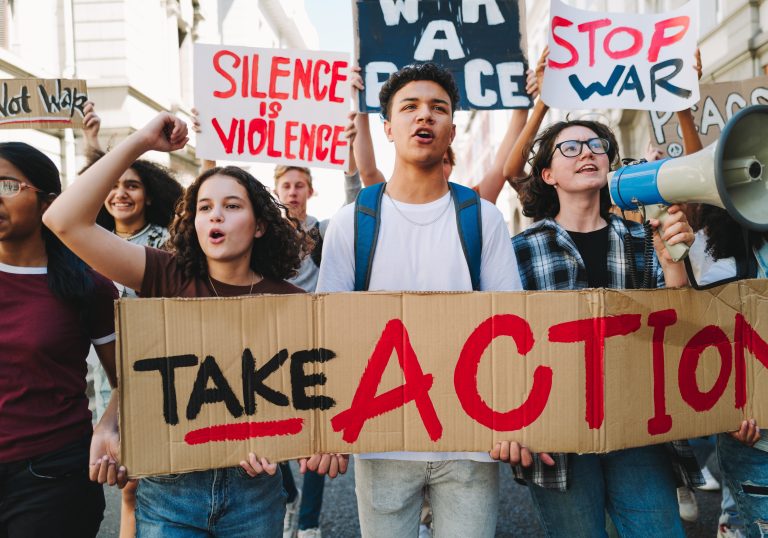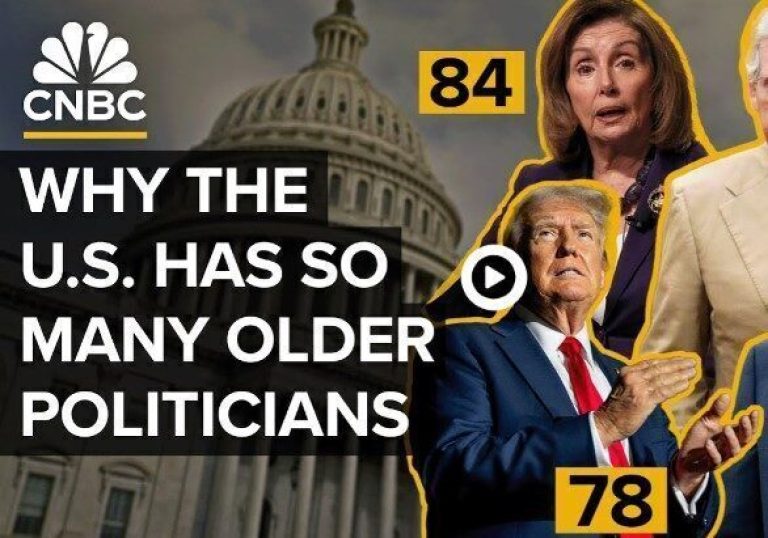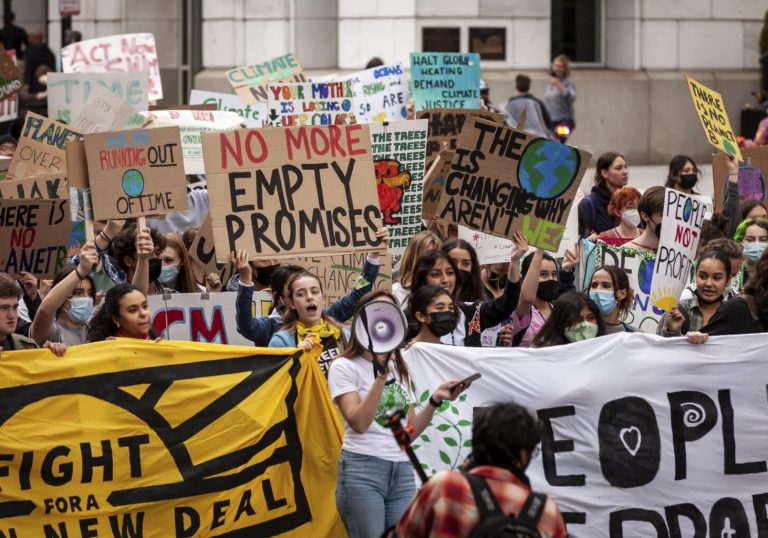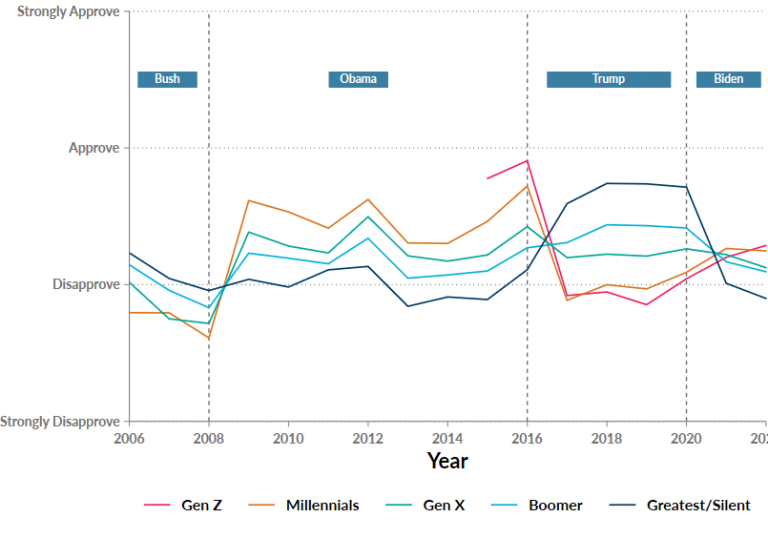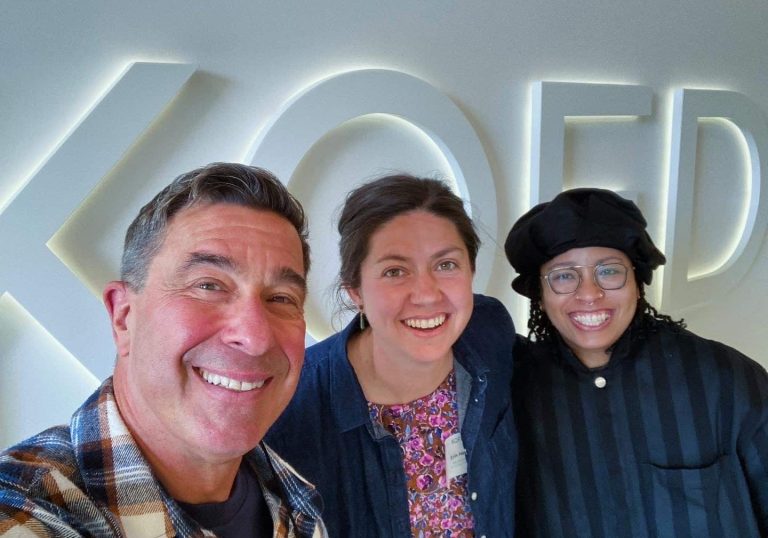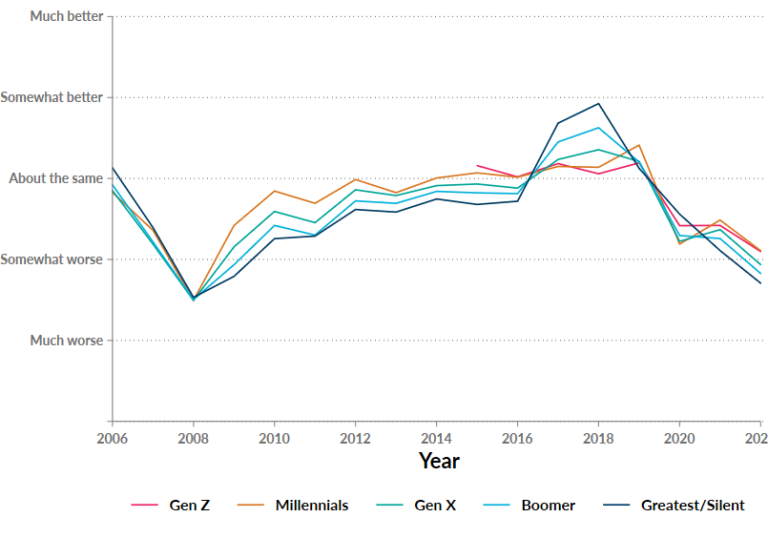2024 Election Vibe Check: Interviews with the Next Generation of Leaders in American Politics
To better explore the state of youth voices in American politics as we enter the 2024 Election Year, BIFYA is publishing a series of interviews with members of GenZ who are running for office across the country. In an era where the political sphere is undergoing transformative changes, we hope this series of interviews will bring to the forefront a diverse array of young political candidates and highlight their motivations, aspirations, and unique perspectives.
The views and opinions expressed in the following interviews are solely those of the individual political candidates and do not necessarily reflect the views of the Berkeley Institute for Young Americans or UC Berkeley. We aim to provide a platform for diverse perspectives. Any opinions, claims, or statements made by the candidates are their own, and we encourage readers to critically evaluate the content while respecting the principles of open dialogue and democratic discourse.
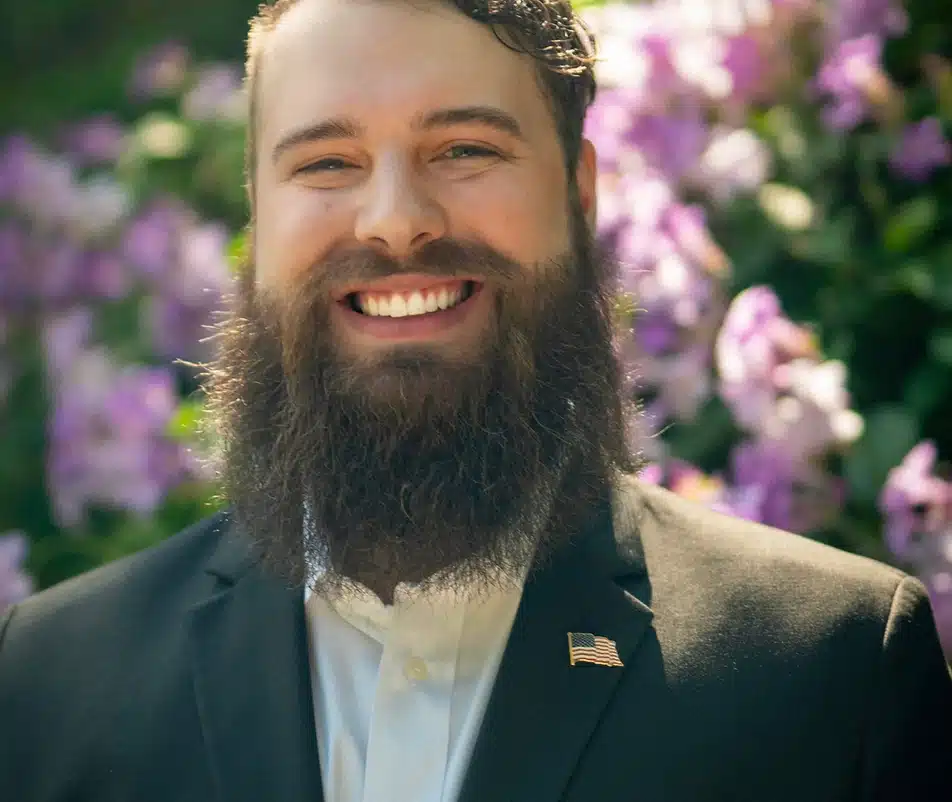
Peter Owen is a Pinellas County native, with a commitment to community service and civic engagement. Owen believes in the importance of supporting those in need and protecting the environment. He is passionate about creating an inclusive society where everyone has an equal chance to succeed. As a parent, Owen is deeply invested in creating a better future for the next generation. He prioritizes accessible healthcare, quality education, and environmental sustainability to ensure a brighter tomorrow for all children.
BIFYA: You’re running for Congress of Florida for District 13. What made you decide to run?
Peter Owen: I grew up in this district, which had been a blue district for basically the whole time I have been in Florida. It got gerrymandered, which allowed our current congresswoman to win the race. Seeing the policies that she’s been pushing and the direction that the state has been going has pushed me to want to jump in and make a change.
I was tired of seeing her refuse to listen to the people that live in the district, and only follow what Trump wanted her to do. That’s not what a member of Congress is supposed to be doing. Seeing that pushed me to jump into this race.
BIFYA: All the candidates running in your district are relatively very young, with ages ranging from 25 to 36. Why do you think so many young candidates are running?
Peter Owen: I think so many people are jumping into this race because of how, for lack of a better word, crazy, the incumbent is. She has shown time and time again that she’s not going to listen to her constituents, but instead do what Trump says. She went on this whole rampage against a bill that was written in the Senate — just because Trump called her and said, ‘Make sure that this doesn’t go anywhere.’
Now she’s wasting time writing bills like the Schumer Act. The Schumer Act would force any member of Congress who votes for aid for Ukraine to serve on the front lines.
Instead of earmarking funds to fight red tide, which is a major problem, fight for beach renourishment, or to help with the affordability crisis, she’s just playing games up there.
BIFYA: What makes you different from other candidates?
Peter Owen: I’m the only progressive in this race. I’m pushing more progressive policies: banning military style rifles, barring corporations like Blackrock from being able to buy properties.
I’m pushing for green energy, which I haven’t heard other candidates talk about. I’m pushing for mandating that all cars are carbon-compliant to reduce the carbon footprint. I’m pushing for solar energies to power our homes, and pushing for nuclear power plants to power the grid instead of the oil-based power that we have now.
BIFYA: You’re in a pretty purple district. What is it like running in a district that’s divided like that?
Peter Owen: When Barack Obama won, we were a blue district. But once it got gerrymandered two or three years ago, it became a very red district. Voter registration is now 200,000 registered Republicans, 145,000 registered Democrats, and 165,000 registered non-party affiliates.
I’ve been calling people and meeting people. A lot of the issues that people are bringing up, whether they are Democrat, Republican, or a non-party affiliate, is the issue of being pro-choice. Most people are pro-choice to a certain extent, whether that’s 15 weeks or whether that’s up to full term. Most people don’t want to see it fully banned.
The main issues are abortion, Medicare, and Social Security — and Rep. Luna has voted again and again to cut Social Security, Medicare, and Medicaid, and is a pro-life extremist.
BIFYA: On your website, you focus a lot on environmental protection and economic development. Often, there is tension between implementing strict environmental regulations and promoting economic growth. What specific measures do you propose to balance environmental protection with economic development?
Peter Owen: There is a very slim middle class in this district. You are either in the South Side Saint Pete project housing or borderline project housing, or you have your boat in your backyard, which is on the water. The wealth gap in this district is just so large and evident. So some of the economic development programs I’d like to put forward would be universal free college from the state college, public colleges as well as trade school. A lot of people that I’ve talked to are working these jobs that don’t pay very well. And if they have kids, they can’t afford to spend that extra $300, $600, every few months at their local junior college. By eliminating tuition, that would help those people be able to go out there and get the schooling that they need and get higher paying jobs, whether they want to go to college and get a business degree or whether they want to go to a trade school and become a welder or pipefitter.
We have these neighborhoods like South Side Saint Pete, and people think that dropping a Trader Joe’s and Starbucks will help the neighborhood be on the up and up, but that’s not what happens. You can even see it in downtown Saint Pete, you can see it in Central Avenue. Some big company comes in, buys up a bunch of cheap housing, and builds a luxury apartment building on top of it. And so instead of working with the people that are in these neighborhoods to build it up and remain local, they’ve kind of forced them out. So I’d like to push for programs that would allow them to be able to help them start their own businesses and build up their own neighborhoods with the locals.
BIFYA: What policies make housing more accessible for lower income populations or for younger adults?
Peter Owen: I really like what Maxwell Frost is doing with his no junk fees because we can’t spend $200 five times to apply to get into an apartment complex. And so by removing [junk fees], or if not fully removing them lowering them by a lot, I think that would help a lot of young folks. And on top of that, rent control to where you can’t raise your rent more than the rate of inflation for that year. A lot of the areas are not re-doing anything. It’s the same low rent or medium-to-low rent apartment complex. But once these developers start putting some of these nicer stores around it, they jack up the rent, and all of a sudden people want to live here. Then, the rent will go from $1,200 to $2,200 – it’s that fast.
BIFYA: You’re a new parent. What insights could you bring to the table regarding policies that could support families raising children?
Peter Owen: We need more programs to help people. One of the first bills that I would like to put forward after I win is called The Total Child Care Act, and it would create a mandate for any companies or businesses with 15 employers or more to require 12 weeks of maternity leave. I would like it to be a paternity leave, but I know I’m going to have to compromise with some people.
On top of that, [I want to] expand Medicare to not just 65 and up, but from birth until age 18. If you look at the stats, I believe it’s 46% of women who get abortions do so because of money and finances, so they’re worried about the bills of giving birth, and after, the bills of affording food, or going to doctor’s visits.
When [my daughter] was born, the hospital made us stay for three days by hospital protocol. And then the day we got out, we had to take her to the E.R. later that night, and between those two hospital visits, the total medical bills, if we didn’t have health insurance, would have been somewhere around $130,000 or $140,000. They would have been bills that we never would have paid off. So I would advocate for covering the cost of the birth for mothers as well as any medical expenses for a child because that shouldn’t be something you have to worry about. You shouldn’t have to be scared your kid’s going to get sick and never going to be able to pay for it, or they’re going to need a medicine that your insurance isn’t going to cover.
On top of that, I would like to expand food programs like WIC, and I know a lot of that is a state issue, so I’d like to put pressure on them. I would like to expand the income threshold because I have people in my neighborhood who’ve used WIC and how helpful that is for formula. [My daughter] is on formula and it’s very expensive, so just by expanding those benefits, that would be something that parents wouldn’t have to worry about as much.
Lastly, the other thing I would like to do is to expand the public school system or create a government funded daycare program, anything from six months up until they start kindergarten. Because again, my wife is at work and I’m trying to do fundraising. It’s a little bit difficult when I have to stop and feed a fussy baby.
BIFYA: How has running been for you so far? What are the challenges you’re seeing and what has been the most fun?
Peter Owen: The most fun is getting to speak at these meetings because I really enjoy public speaking. Getting to go and talk to the voters and give my speech on whatever issue I’m talking about or whatever issue that meeting is about, that’s been my favorite part so far.
The most difficult part has been fundraising, and I think that’s just because there’s so many people running in this race. There’s, I think, six candidates in our primary, so you’ll call someone and they’ll be like, I already donated to another candidate.
BIFYA: We’re hearing from a lot of the younger candidates that fundraising is certainly an obstacle.
Peter Owen: It’s just something I hate to do]. I understand you need money and a lot of it to win, and I don’t know if any of the other young people have talked about this, but I hate having to go up there and talk about how much I fundraised, or stuff like your numbers, or posting on your social media about how much you’ve raised. I do not do that because I don’t like it. And, to me, it seems shallow. I’ve never liked other candidates doing that when I was just a voter, so I’m kind of refusing to do it, but my strategy guys are not happy with that.
BIFYA: When you talk to young voters or friends, how engaged do you think young people are this election year? Do you think young people will turn out to vote?
Peter Owen: I do. I think a lot of the younger voters are focused on issues like abortion, the environment, and guns. I think that they’re all very engaged. Young people realize that these politicians are running our lives, and can choose what we can and can’t do — so we should probably focus up and do our research and vote.

